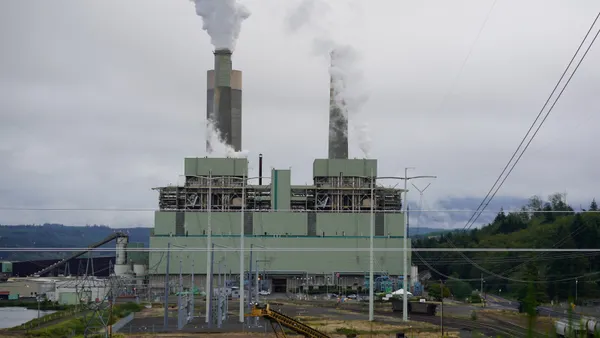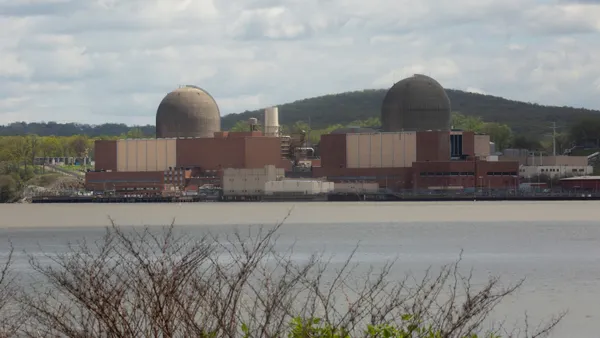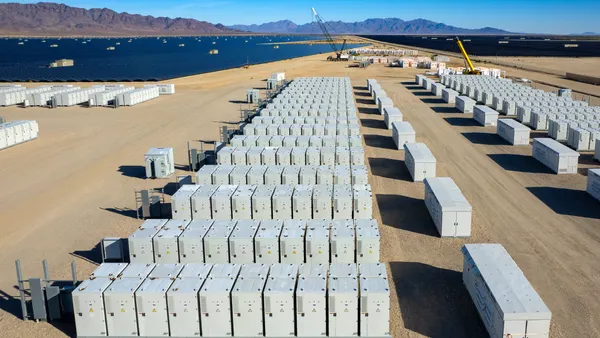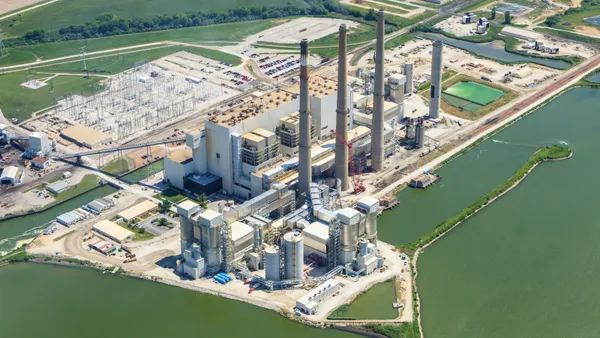Dive Brief:
- Scott Pruitt, the embattled administrator of the Environmental Protection Agency, has resigned his post as the nation's top environmental regulator, President Trump announced Thursday on Twitter.
- Pruitt pursued an aggressive deregulatory agenda during his time at the helm of EPA, including attempts to weaken greenhouse gas regulations for power plants, fuel economy standards for cars and the nation's first federal rules on coal ash. But his tenure was beset by political and ethics scandals, including his rental of a $50-per night room on Capitol Hill from the wife of an industry lobbyist with business before the agency.
- Pruitt's resignation means Deputy Administrator Andrew Wheeler will head the EPA until the president nominates a new permanent leader. Wheeler is a former coal industry lobbyist who was involved in conversations on power plant subsidies last year, but has since said he would recuse himself from discussions on a potential federal bailout for coal and nuclear generators.
Dive Insight:
Pruitt's departure will likely mean a less scandal-prone EPA that could be more effective at carrying out Trump's deregulatory agenda, former agency officials and energy lawyers said.
"I don't think we'll see any big shifts in policy," said Jeffrey Holmstead, who served as an assistant administrator for EPA's Air and Radiation Office under George W. Bush. "We'll see these regulatory reforms carried out in a more low key, thoughtful kind of way."
In just over a year in office, Pruitt finalized more than 20 regulatory rollbacks, but critics say many of those proposals were hastily constructed and vulnerable to legal challenges. This spring, a federal appeals court said EPA had violated the law by delaying compliance designations for its ground-level ozone rule, and last year a separate court threw out Pruitt’s attempt to suspend a methane rule for oil and gas wells from the Obama administration.
"My sense is [Pruitt] was flying by the seat of his pants a lot and ignoring agency staff," said Sean Hecht, an energy law professor at UCLA. "If you look at some of the proposed rules, my judgment is it is unlikely those were strongly vetted by legal counsel. I would expect Wheeler to be much more careful and work within agency processes."
"Even for a lot of us that supported Pruitt's reforms, having someone like Andy there actually may be more effective when it comes to implementing them."

Jeffery Holmstead
Former deputy EPA adminsitrator
Holmstead, now a partner at the Washington law firm Bracewell, said Wheeler's experience as a lobbyist, an aide to Sen. Jim Inhofe, R-Okla., and a staffer in the EPA's Pollution Prevention and Toxics office early in his career could help him be more effective than the outgoing administrator.
"He understands how the regulatory process works and all it takes to get these reforms in place and do that in a way that’s legally defensible," Holmstead said. "Even for a lot of us that supported Pruitt's reforms, having someone like Andy there actually may be more effective when it comes to implementing them."
On top of Pruitt's multiple scandals, EPA officials regularly dealt with reports that their administrator wanted a different job. Just this week, CNN reported that Pruitt personally asked Trump to make him Attorney General, after which he would return to Oklahoma to run for office.
"It's no secret that Pruitt has had other political ambitions," Holmstead said, "and so he certainly has been aware of the politics and maybe has focused on that, whereas I don't think [Wheeler] has other political ambitions."
Wheeler's transition to the helm of EPA is unlikely to bring any significant policy shifts, both lawyers said, as Wheeler has been closely involved in the Trump administration’s energy policy, advising the presidential campaign and representing coal mining interests at meetings with White House officials last year.
"On substance, I don't think there's any daylight between Pruitt and Wheeler," Holmstead said.
That policy agreement likely extends to regulating greenhouse gases, Hecht said. Though Wheeler has questioned the scientific consensus around climate change, the UCLA professor expects him to follow Pruitt's plan to replace the Obama administration's Clean Power Plan with a weaker regulation, rather than refuse to write a carbon regulation altogether.
"A lot of close advisors and industry lobbyists have been lobbying for that disposition," Hecht said. "They don't want the administration to try to hit a home run for the climate deniers. They want the administration to do something legally defensible. I see that as a more likely outcome under Wheeler."
Despite the policy similarities between the two figures, environmental groups cheered Pruitt's retirement on Thursday — something Holmstead said they may come to regret.
"A lot of folks in the environmental community who have targeted Pruitt are going to end up disappointed because I don't think that Pruitt leaving is going to have any impact on policy," Holmstead said, "and I think the people who support the regulatory reforms that Pruitt started are going to be pleased because I think Wheeler is going to be able to carry them out."













